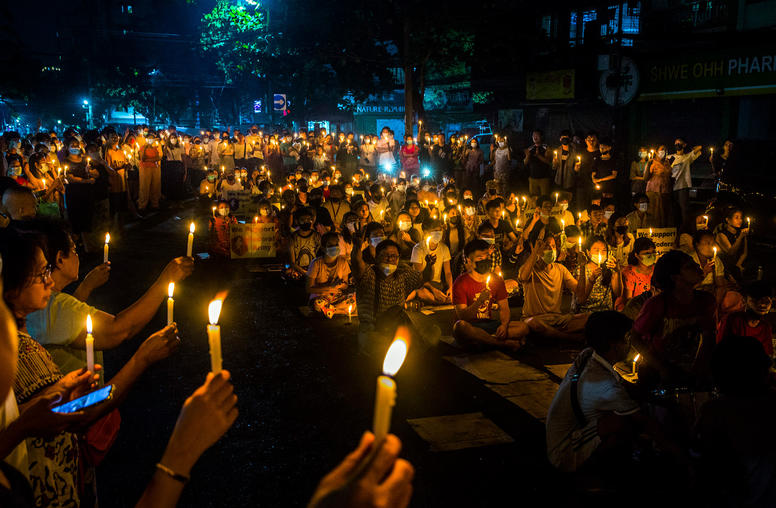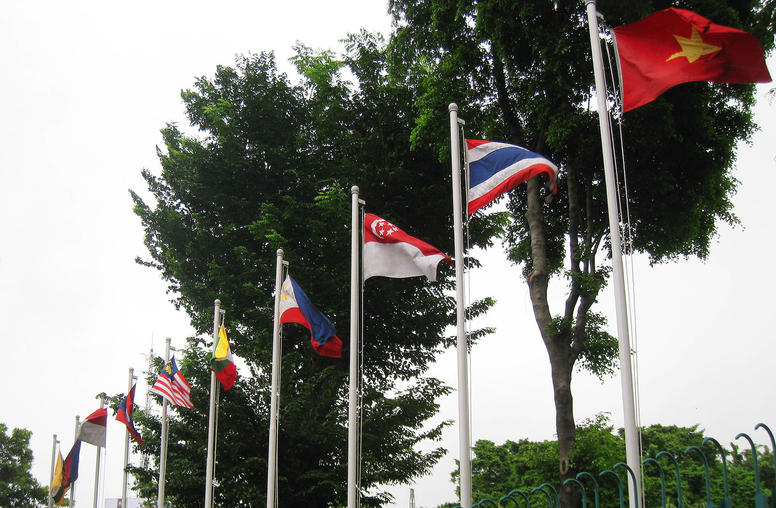 Burma
Burma
In February 2021, Burma erased 10 years of progress toward political reform after the military took power in a coup. Since the coup, the military has created an environment of constant chaos and terror, killing scores of protesters, and waging a war against the Burmese people, who refuse to be subjected once again to brutal military rule. Since 2012, the U.S. Institute of Peace has worked with communities in Burma to curb intercommunal tensions and violence and support stakeholders looking to end decades of civil war and oppression. In addition, USIP’s Burma program provides timely research and analysis on conflict dynamics in Burma for practitioners, policymakers and observers in Burma and abroad.
Learn more in USIP’s fact sheet on The Current Situation in Burma.
Featured Publications

China Forces Myanmar Scam Syndicates to Move to Thai Border
While Myanmar has long been the chief venue for the criminal operations of Chinese-origin gangs in Southeast Asia, these organizations have always stood ready to move — internally or across borders — if their sources of protection dissolved. In recent months, the organized crime kingpins have once again faced a fraying safety net. This time, the cause is the weakening of Myanmar’s corrupt coup regime in the face of a rising, multi-front revolution and, perhaps more importantly, an aggressive push by China’s law enforcement authorities.

Myanmar’s Collapsing Military Creates a Crisis on China’s Border
Operation 1027 — an offensive launched in October 2023 by an alliance of three ethnic armed organizations (EAOs) against the military junta in Myanmar — has disrupted hundreds of forced labor scam syndicates operating under the protection of Myanmar’s army, dented the army’s image of invincibility and decimated the lucrative China-Myanmar border trade. A second operation launched on March 7 by another EAO in Kachin State has compounded China’s economic woes by adding to the impact on trade.

How a Fractured Myanmar is Navigating U.S.-China Rivalry
As the rivalry between the United States and China intensifies, Southeast Asian countries have been forced to navigate this growing power competition. The challenge has proven formidable even for those with strong governance and stability. For Myanmar — where a civil conflict between the ruling military junta and a loose alliance of resistance groups recently entered its fourth year — developing a cohesive approach to navigating U.S.-China competition might seem unattainable and unimportant in the current moment.
Current Projects
Transnational Organized Crime in Southeast Asia
Over the past decade, Southeast Asia has become a major breeding ground for transnational criminal networks emanating from China. USIP assembled a senior study group to assess one of the most pernicious aspects of such criminality: rapidly spreading, industrial-scale scam compounds that rely on forced labor lured from around the world. The senior study group convened four meetings to share research and information on the trends, dimensions and character of the criminal networks operating the scam compounds and developed recommendations for countering their malign effects.

Religious and Psychosocial Support for Displaced Trauma Survivors
Since spring 2021, USIP has been identifying best practices in psychosocial support to better facilitate collaboration and cooperation between religious actors and mental health professionals who provide services to conflict-affected communities, including trauma-affected displaced persons. This thematic area of work focused initially on Latin America as a pilot region and has since expanded to the Asia and European contexts — offering practical and evidence-based recommendations to relevant stakeholders.

Southeast Asia in a World of Strategic Competition: An Essay Series
Great power rivalry between the United States and China is frequently described in bilateral terms, with regions of the world — including Southeast Asia — merely serving as arenas of competition. But this framing ignores the agency of third countries in managing the risks and opportunities presented by this competition. To explore these countries’ agency and the corresponding policy options, this USIP essays series includes contributions from 10 Southeast Asia-based experts. Each essay provides one country’s perspective on how the members of the Association of Southeast Asian Nations (ASEAN) perceive and respond to strategic competition between the United States and China.